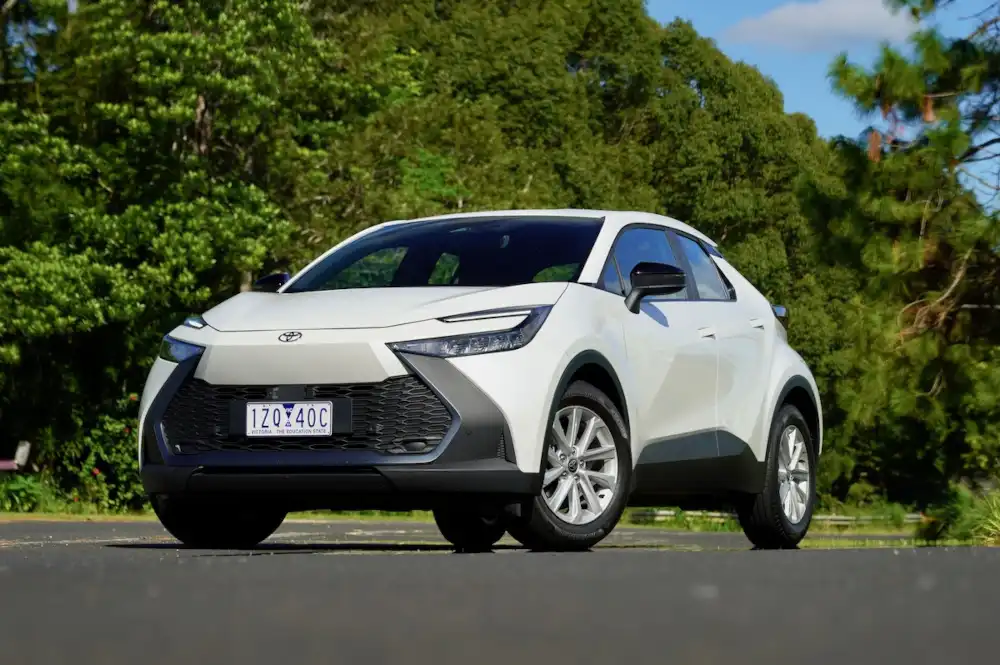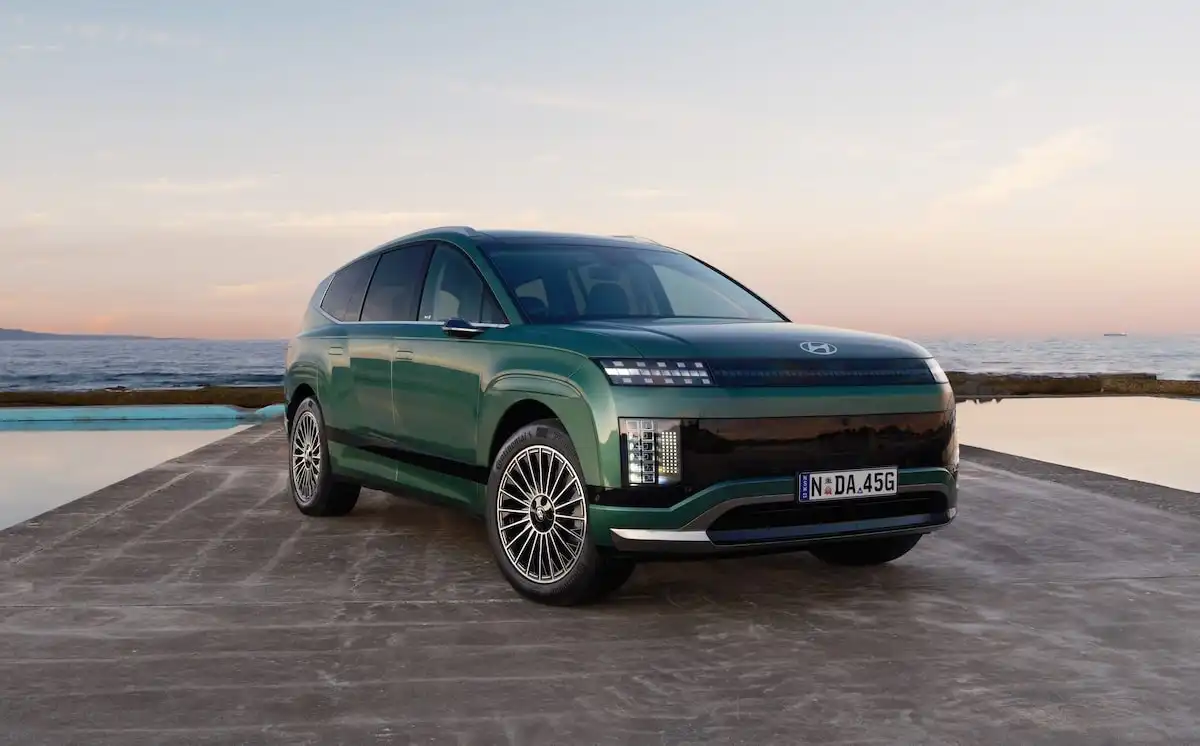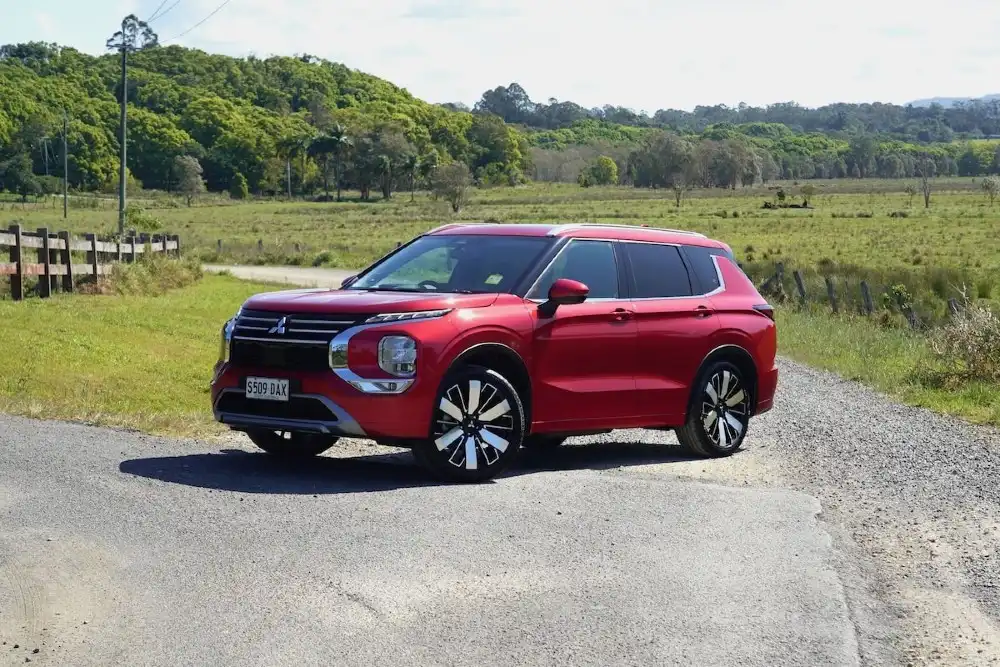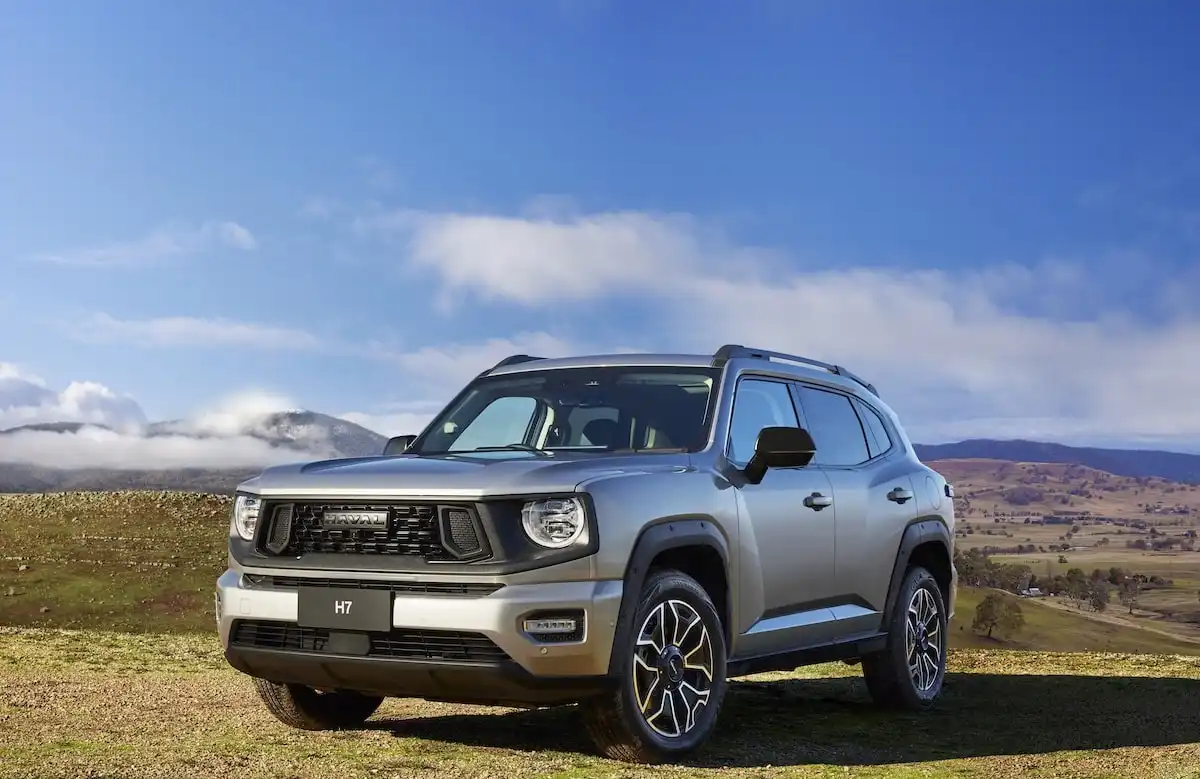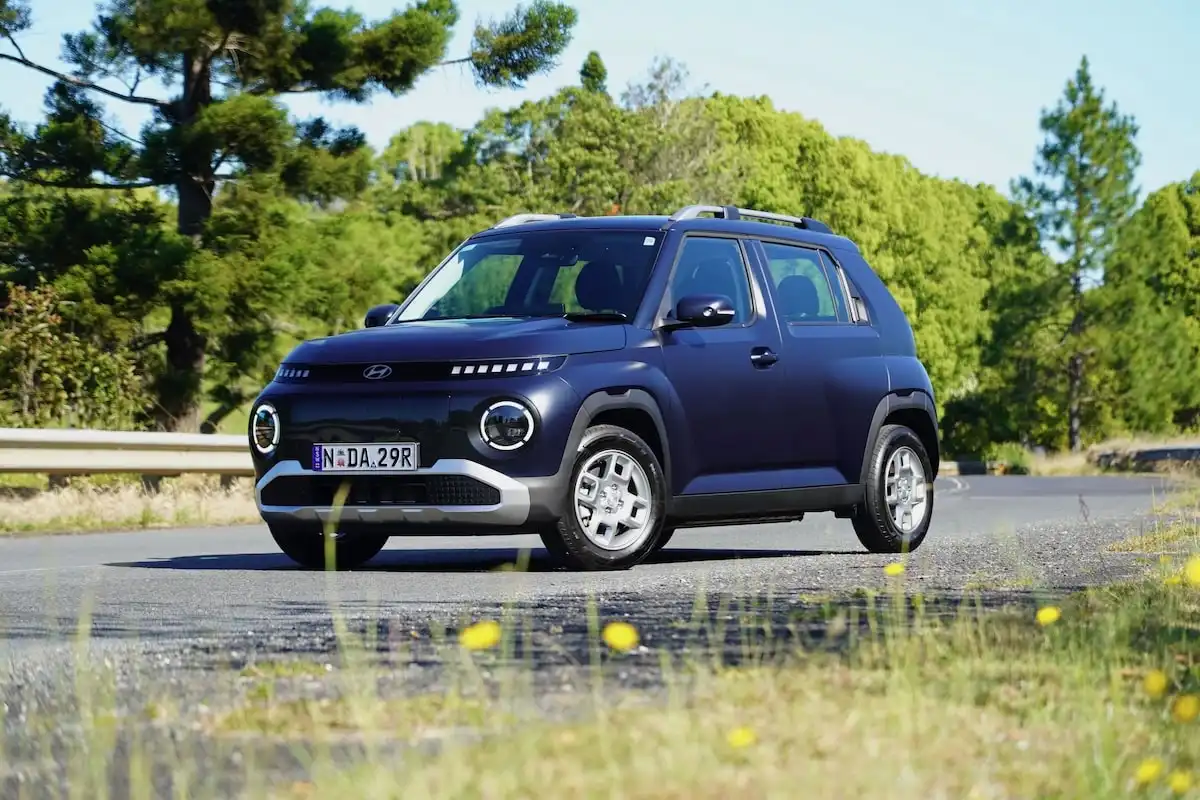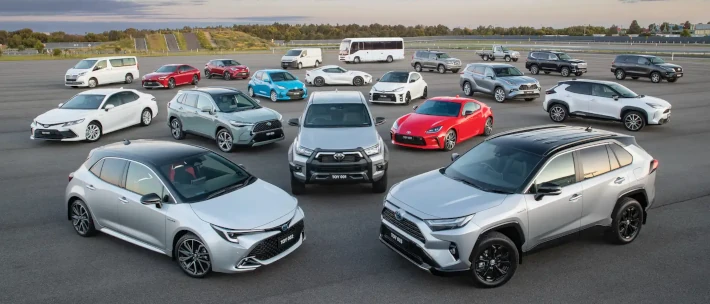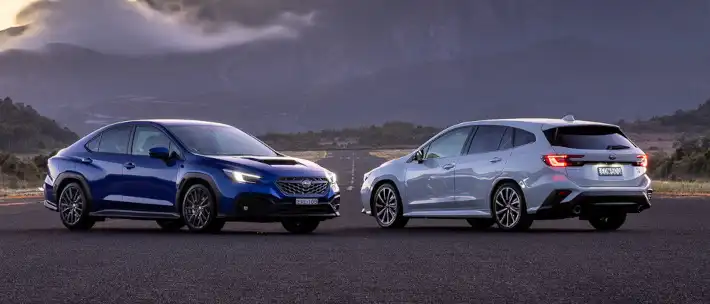@onlineauto.com.au Find out how much you can save on your next Toyota C-HR with OnlineAuto! 💰 Toyota C-HR GXL Quick Look! 🔵Servicing costs capped at $250 per visit; $1,250 over five years 🔵Ten-year hybrid warranty when serviced on time, within network 🔵4.0L per 100km fuel economy figures 🔵362 - 1,134L boot space 💬 Talk to one of us today & get a great deal with OnlineAuto! Detailed Car Review: https://www.onlineauto.com.au/toyota/c-hr/2025-toyota-c-hr-gxl-review #OnlineAuto #CHR #Toyota #SUV #CarReview #TestDrive#BestDeals #NewCar #straya #carsoftiktok ♬ original sound - OnlineAuto.com.au
It stands out from the ever-crowded compact SUV segment with a unique styling package and the company’s outstanding hybrid powertrain, with a three-strong lineup offered here in Australia.
One key problem for the C-HR, though, is that competition in the small SUV segment is incredibly tough, meaning it needs to offer buyers more than aesthetics to truly assert itself against key competitors.
We got behind the wheel of the entry-level C-HR GXL to find out just how competitive Toyota’s entry-level version remains and whether it’s worth a spot at the top of your compact SUV shortlist.
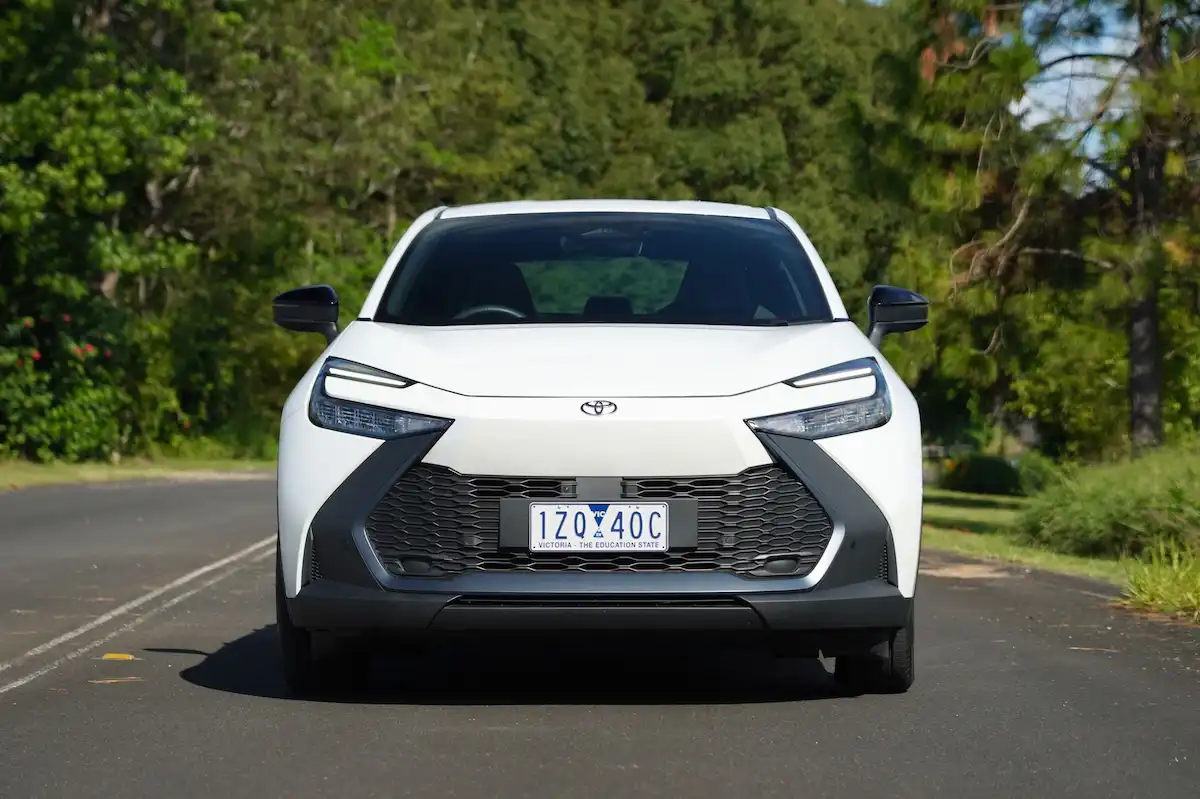
Toyota C-HR Competition
Toyota C-HR |
VS |
Honda HR-V |
| Hyundai Kona | ||
| Nissan Juke | ||
| Subaru Crosstrek | ||
| Mazda CX-30 | ||
| Peugeot 2008 | ||
| Volkswagen T-Roc |
How Much Does the Toyota C-HR Cost?
Toyota offers the MY25 C-HR range in three variants.
Prices kick off from $42,990 for this entry-level GXL and rise up to $49,990 for the mid-range C-HR Koba, while the range-topping C-HR GR Sport is priced at $54,990.
-
MY25 C-HR GXL - $42,990 (tested)
-
MY25 C-HR Koba - $49,990
-
MY25 C-HR GR Sport - $54,990
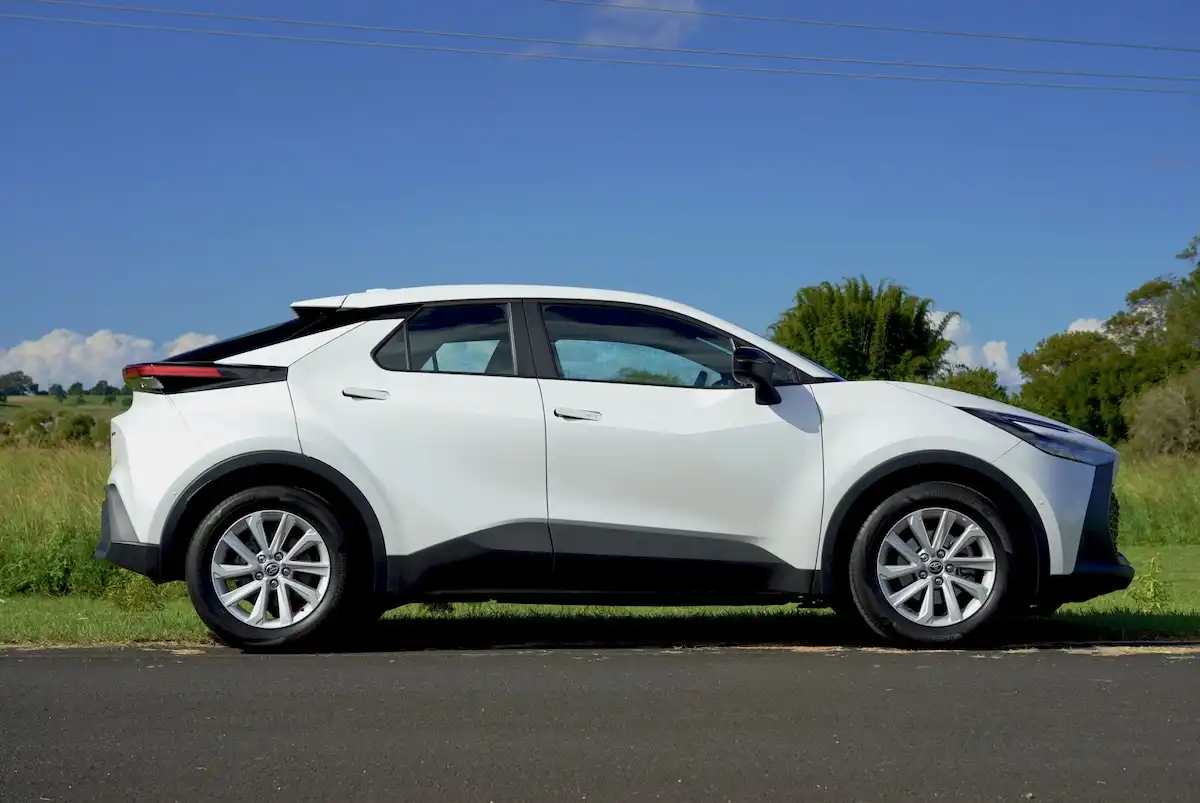
How Much Can OnlineAuto Save You?
Using OnlineAuto’s car buying service, you could save thousands on your next car with the help of our team of car-buying specialists.
Toyota C-HR GXL Specifications
| Model Date | 2025 |
| Make | TOYOTA |
| Model | C-HR |
| Series | ZYX20R |
| Variant | GXL HYBRID |
| Body | 4D WAGON |
| Fuel type | UNLEADED PETROL/ELECTRIC |
| Transmission | CONTINUOUS VARIABLE |
| Drive | FWD |
| Engine | SFI |
| Engine capacity | 1798 |
| Engine configuration | VARIABLE DOUBLE OVERHEAD CAM / 16 valves |
| Engine RPM | 5200.0 / 3600.0 |
| Cylinders | 4 |
| Torque | 142 |
| KW | 72 |
| Fuel tank size | 43.0 |
| Fuel usage specs | 4.0 / 0 |
| CO2 | 89 |
| ANCAP security rating | 5 |
Get in touch with one of our Car Buying Specialists today.
Request a quoteWhat Features Does the Toyota C-HR GXL Have?
The C-HR GXL sits at the bottom of the lineup, though it picks up a number of key features to keep it competitive at this price point.
The list of features is headlined by a set of 17-inch alloy wheels, LED head & tail lights, LED daytime running lamps, keyless entry & start, a surround-view monitor with front & rear parking sensors, adaptive cruise control, dual-zone climate control and a 7.0-inch digital instrument cluster.
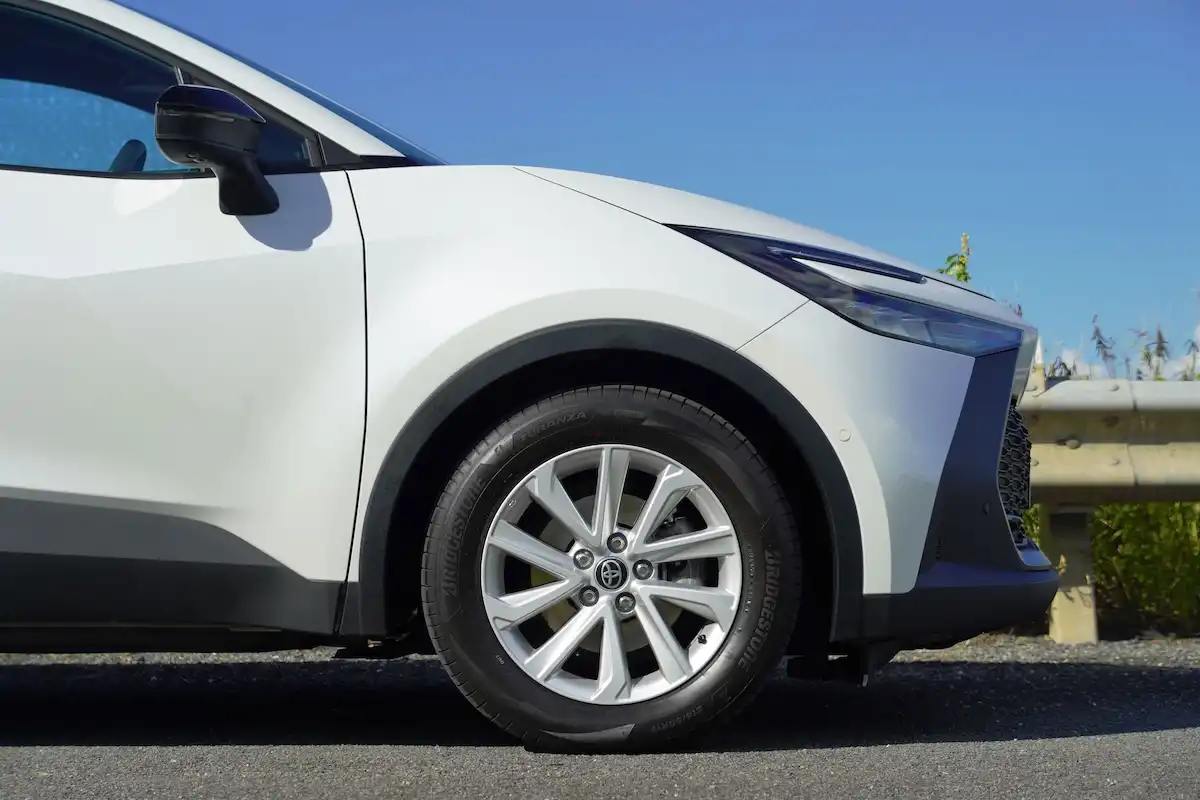
There’s also a solid amount of infotainment and safety tech thrown into the mix, which we’ll unpack in the connectivity and safety features sections of this review.
All things considered, we think that considering its price tag, Toyota could have thrown in a few more premium touches with the GXL, though this ultimately isn’t possible because it would take some allure away from the Koba and GR Sport variants.
Toyota C-HR GXL Connectivity & Infotainment Features
Toyota packages all members of the MY25 C-HR range, from this entry-level GXL to the flagship GR Sport with the same infotainment system.
This means that budget-conscious buyers still pick up Toyota’s 12.3-inch touchscreen infotainment system and aren’t relegated to a lesser display with fewer features.
Toyota’s 12.3-inch infotainment system is a very solid offering in the space, with high brightness levels and a reasonably fast refresh rate, all backed by decent processing power that keeps things moving smoothly.
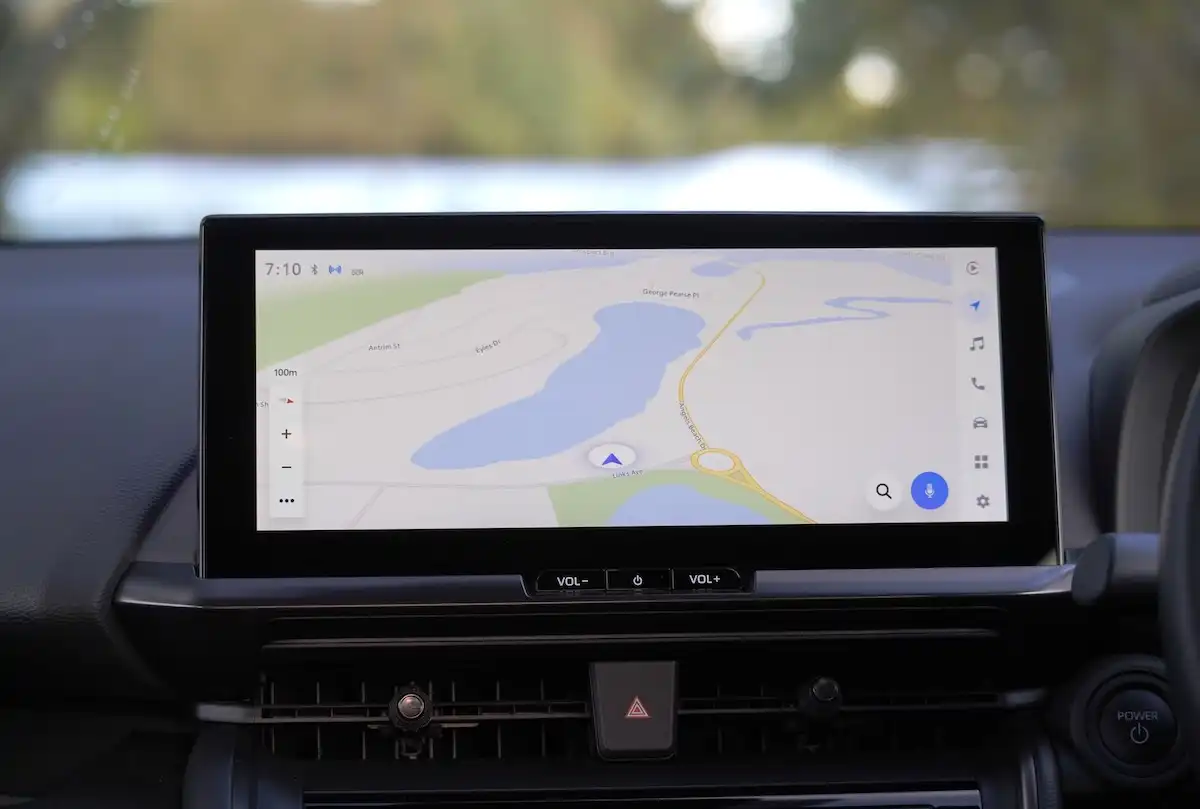
The 12.3-inch system is packaged with AM/FM and DAB+ digital radio as well as Toyota’s satellite navigation system and is paired with a pretty average six-speaker sound system.
Buyers also pick up a 12-month subscription to Toyota’s Connected Services suite which offers connected navigation updates, driving insights, location tracking, SOS emergency calls and remote vehicle controls.
Once your 12-month subscription is up, you’ll be limited to ‘Toyota Essential’ features or be forced to shell out $9.95 or $12.50 per month for Toyota Connect+ and Toyota Connected Multimedia packages, respectively.
Does the Toyota C-HR Have Wireless Apple CarPlay & Android Auto?
Toyota offers wireless smartphone connectivity in the MY25 C-HR range, though it’s only on offer for one major ecosystem.
iOS users will be pleased to hear that the C-HR offers wireless Apple CarPlay, though Android owners are forced to bring their own USB cable in the absence of wireless Android Auto.
The process of pairing our iPhone with the C-HR’s infotainment system was quick and simple, with no drop-outs in the connection over a week behind the wheel and a fast connection to our phone when starting it up for a drive.
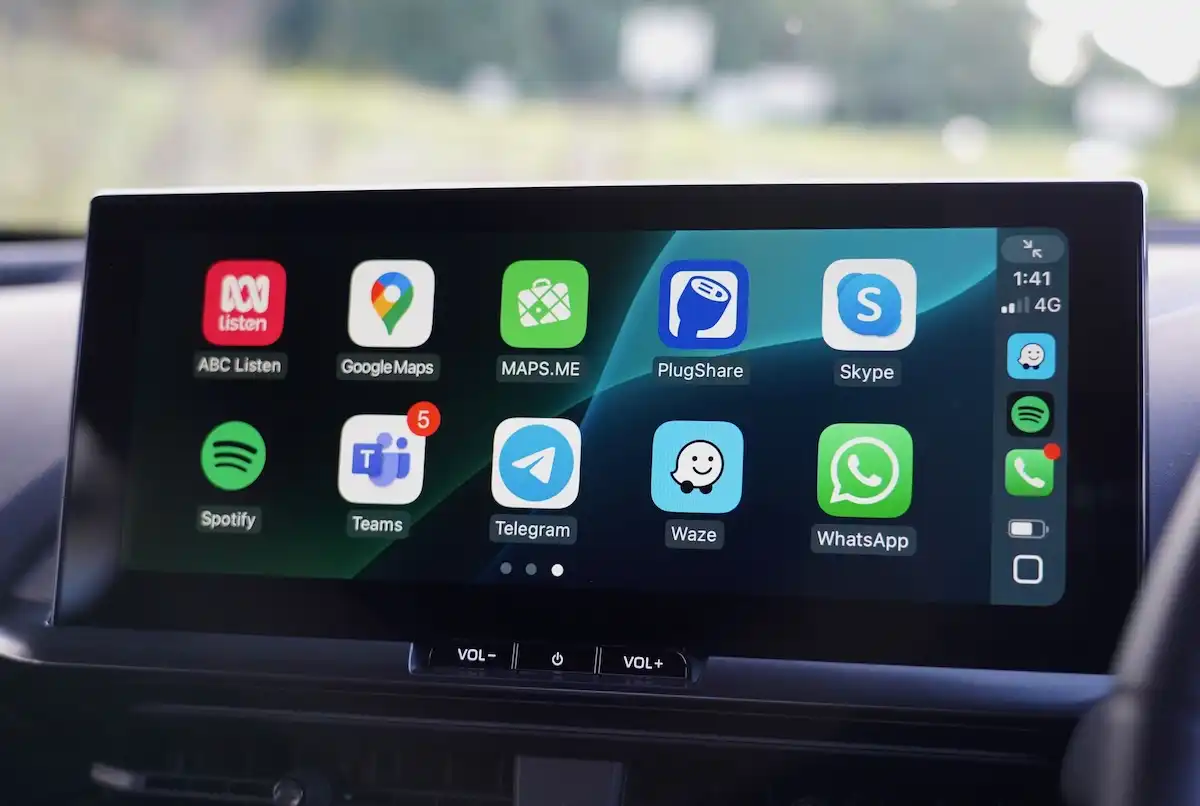
Is the Toyota C-HR Comfortable to Drive?
The Toyota C-HR shines in day-to-day duties around town, but is far more versatile than we first expected it to be.
Typically, a city-slicking little SUV package has a pretty narrow skillset - not the C-HR, however, which remained more than up to the challenge on rougher country roads.
On home turf, though, the C-HR absolutely eats up the urban grind and offers a super refined, smooth and user-friendly nature that makes it a seriously impressive little city car.
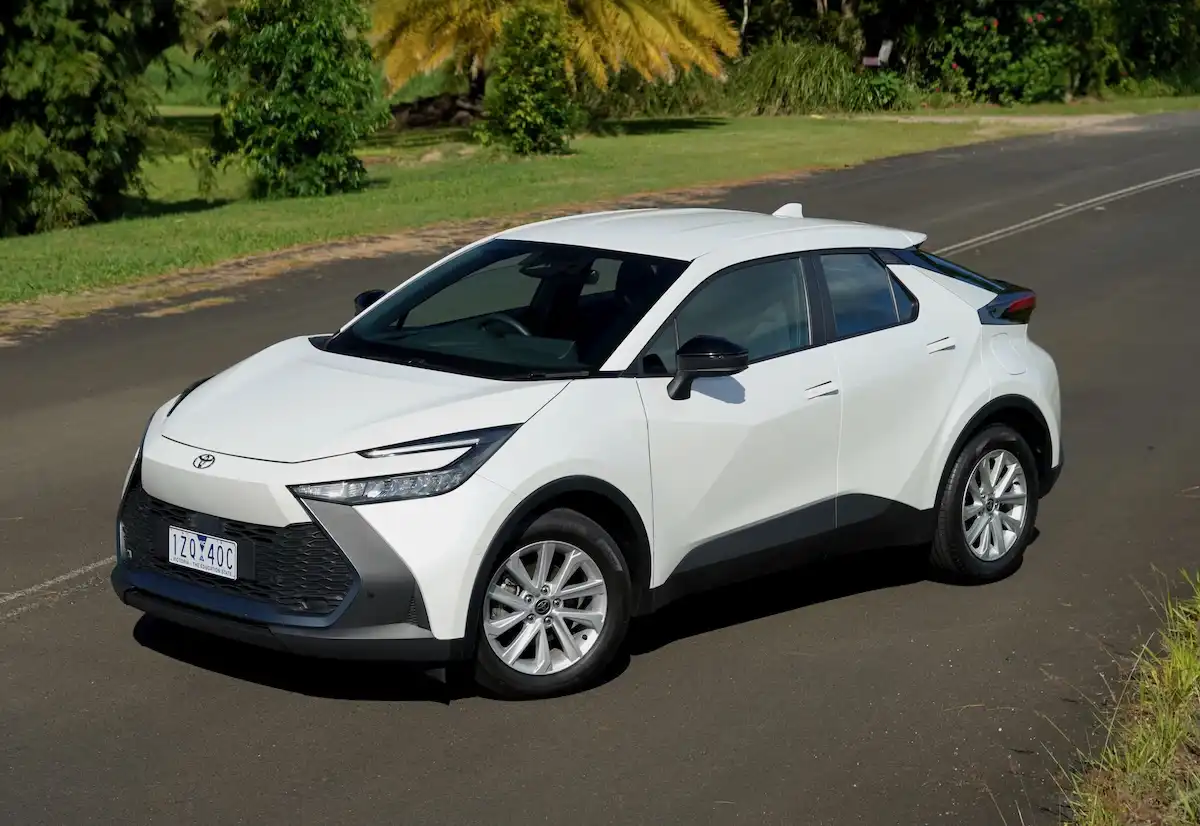
Under the bonnet, the C-HR GXL and Koba pick up a 1.8-litre four-cylinder petrol engine paired with an electric motor that, combined, produce 103kW of power and 142Nm of torque.
Power is thrown to the front wheels via a CVT automatic transmission that, while not exactly exciting, certainly gets the job done in keeping things smooth and eliminating any jerky moments when the ICE unit takes over from the electric motor.
Toyota also offers a more powerful, all-wheel drive version utilising a larger petrol unit and dual electric motor setup that produces 146kW of power and 188Nm of torque, though this added power comes at a serious premium.
We think that while some extra power would certainly be a welcome addition, the base model gets the job done without moving the sticker price to another bracket entirely and AWD in a package like this is complete overkill.
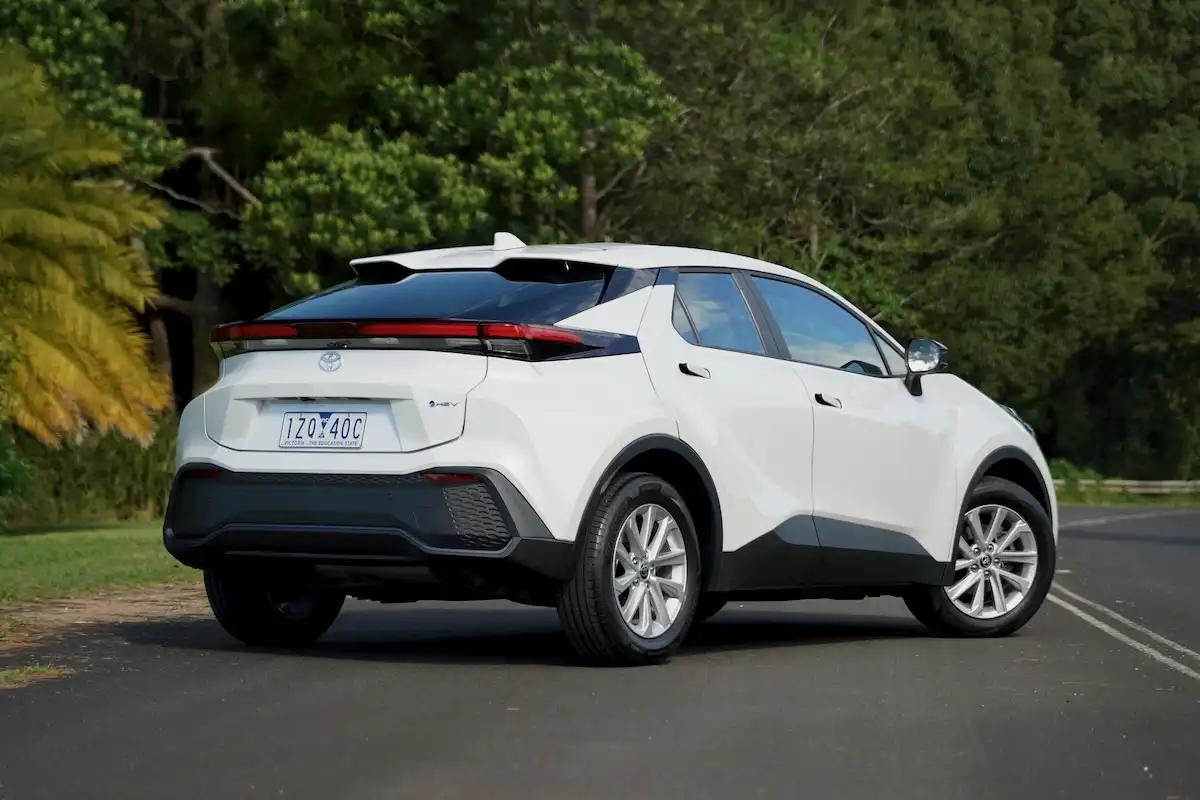
Most of the time, taking off from the line is handled by the electric motor in a smooth, silent manner, while the petrol unit kicks into life as you pick up the pace.
The C-HR’s little petrol engine thrashes around when you boot the throttle and has to dig deep to offer substantive power, though overall, it’s a solid hybrid powertrain for casual cruising around town.
Importantly, the C-HR is a pleasure to deal with in the tight confines of the urban jungle thanks to its pint-sized footprint and the extremely light steering calibration.
There’s not a heap in the way of steering feedback, but it’s a simple task to throw the wheel lock-to-lock and squeeze your way out of a cramped car park or weave your way through traffic.
As you pick up the pace, the C-HR feels incredibly light on its feet, with the front axle happy to dart around that makes it a zippy little package at speed, in spite of its lack of outright power.
All the conventional small SUV boxes have been ticked then, though the C-HR isn’t finished just yet.
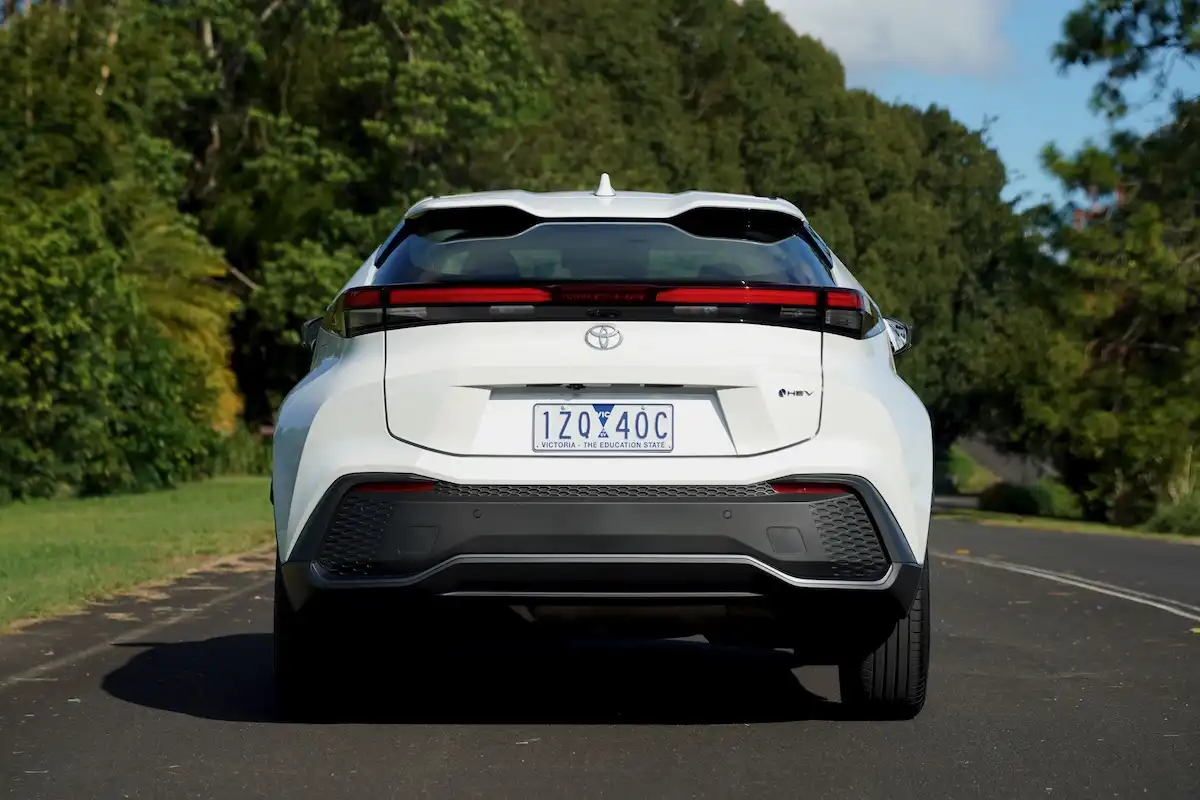
Of course, it’s a smooth highway cruiser with just enough pace up its sleeve for overtakes, though we were really impressed with just how confident the C-HR felt on country roads.
While the suspension package is happy to iron out small, sharper bumps around town, it’s also super compliant trundling up a rough stretch of B-road.
This gives the C-HR a healthy dose of versatility in a segment overflowing with options that perform well around town but struggle to keep things refined outside the urban jungle.
Hats off to Toyota for giving the C-HR a suspension package that can handle a mix of Australian roads while covering all the hallmarks of a city-slicking small SUV package.
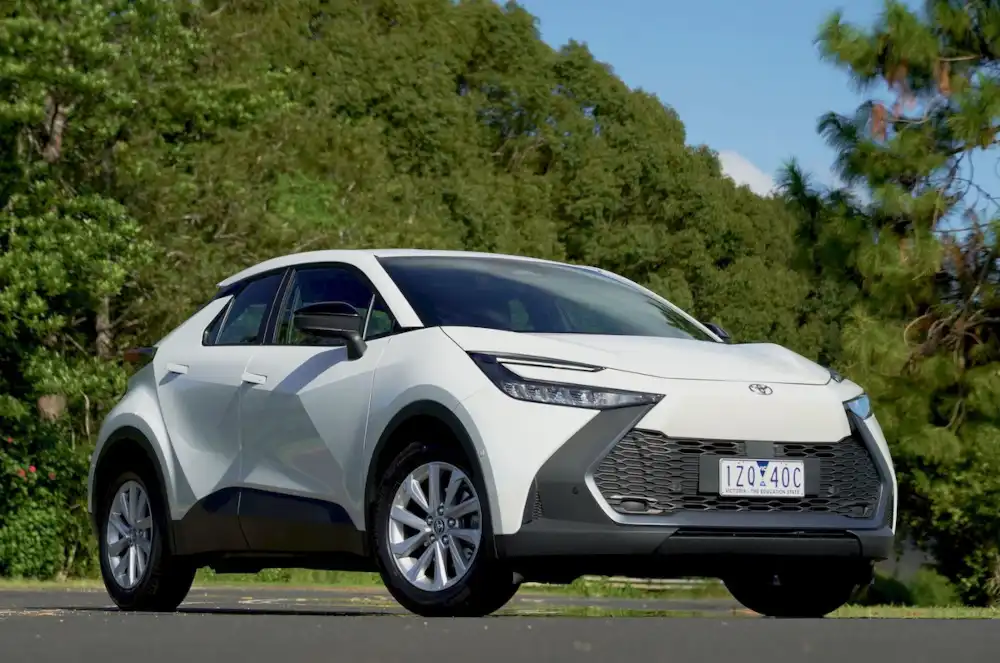
Is the Toyota C-HR Fuel Efficient?
It absolutely is.
Better yet, you don’t even need to make a conscious effort to extract some seriously impressive efficiency figures thanks to Toyota’s hybrid know-how.
With the electric motor helping to take care of acceleration off the line, the C-HR offers great fuel efficiency in town, with the added bonus of a regenerative braking system that captures energy lost during braking, feeding it back into the 4Ah lithium-ion battery pack.
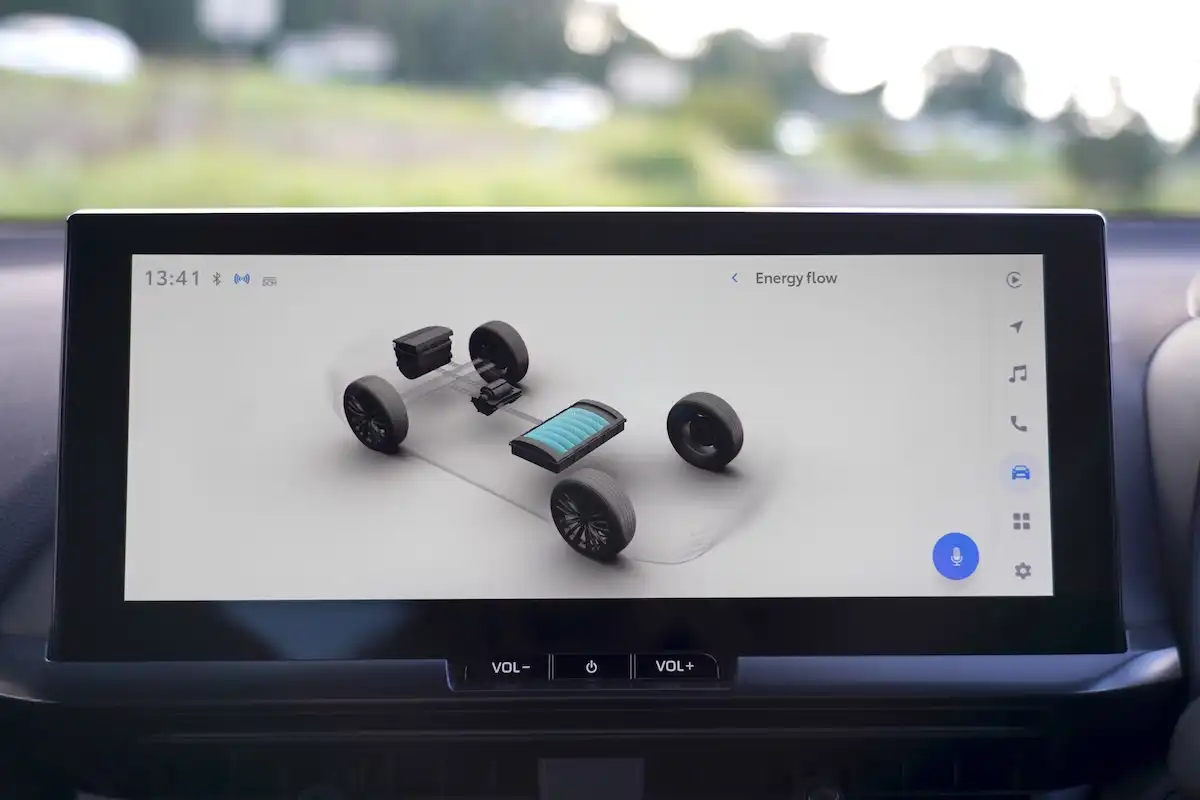
This means that, surprisingly, the C-HR is actually more efficient around town than it is on the highway, which will come as welcome news for city buyers, though it remains a responsible drinker on a long haul up the motorway.
During our time behind the wheel, we covered 850km worth of town, country and highway driving and were able to average 4.3L per 100km, which included stints with a cabin packed with humans.
This goes to show that it’s a pretty simple task to match Toyota’s impressive fuel economy figures, with efficiency remaining one of the C-HR’s clearest selling points, especially in the GXL and Koba’s FWD layout.
The C-HR GXL has a 43L fuel tank and can be filled with RON 91 fuel, as well as E10, with its minimum fuel distance rated at 1,024km.
-
C-HR GXL City Fuel Economy: 4.0L per 100km
-
C-HR GXL Highway Fuel Economy: 4.2L per 100km
-
C-HR GXL Combined Fuel Economy: 4.0L per 100km (claimed)
-
C-HR GXL Combined Fuel Economy: 4.3L per 100km (tested)
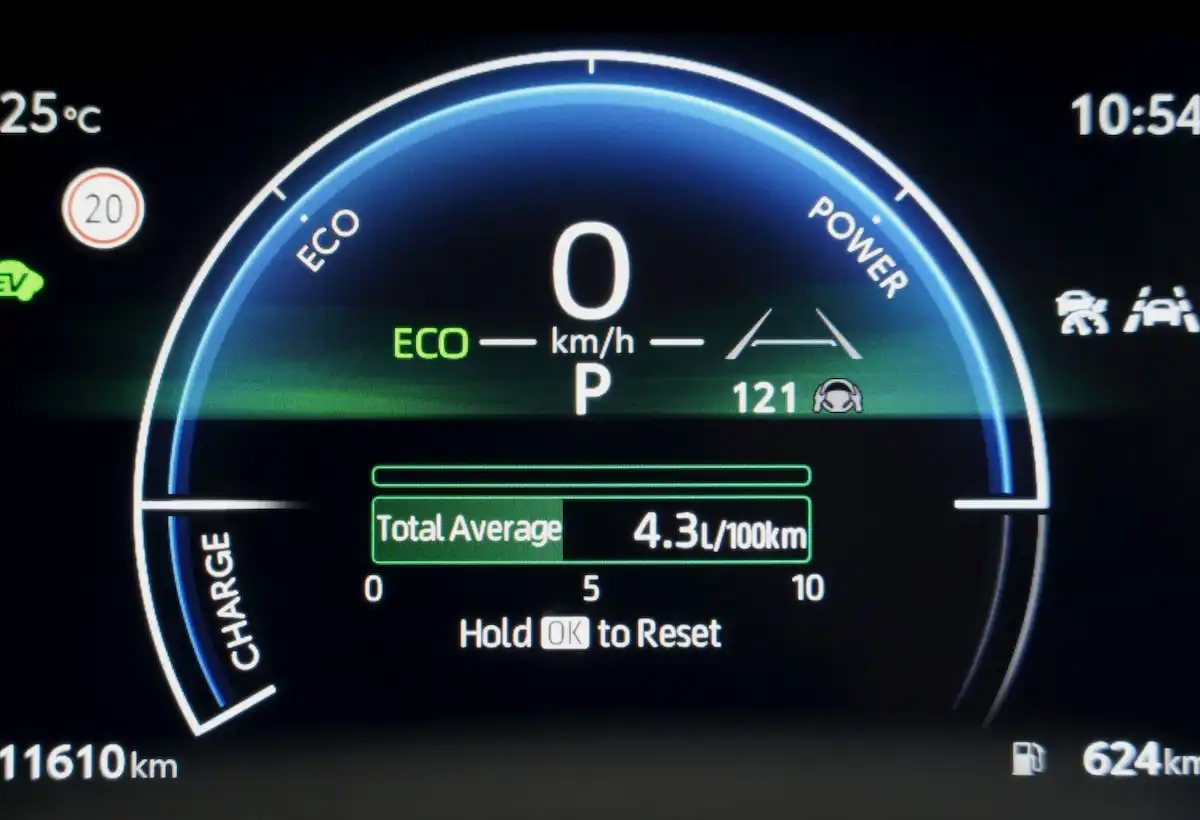
Is the Toyota C-HR Practical and Spacious?
No, not particularly.
In fact, some aspects behind the wheel may prove a little challenging, especially in the tight confines of the urban jungle.
We’ll get to that in a second, but first we need to find out just how welcoming this small SUV is to people with long legs and torsos.
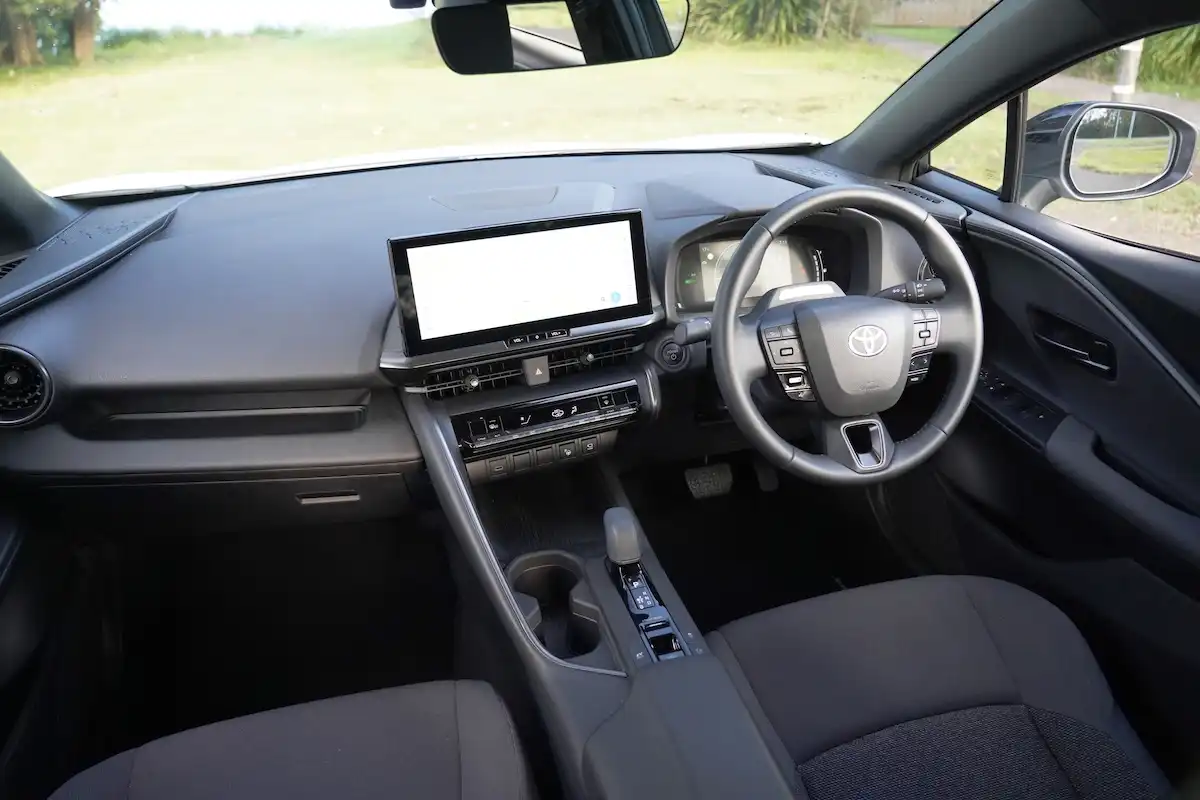
With the seat slunk down into its lowest position, the C-HR certainly feels tight as a tall person - I’m 186cm - though it still allowed for about 4 finger’s worth of real estate between my tallest hair follicles and the roofline.
Once inside, the driving position can be curated with a reach- and rake-adjustable steering wheel. The GXL makes do with manual adjustment for the fairly narrow front seats, with power adjustment reserved for the C-HR Koba.
Our main gripe behind the wheel, however, centres on the frankly poor rear three-quarter visibility, which has been eaten up by an incredibly thick surround for the C-pillar that extends further rearward due to the hatchback boot design.
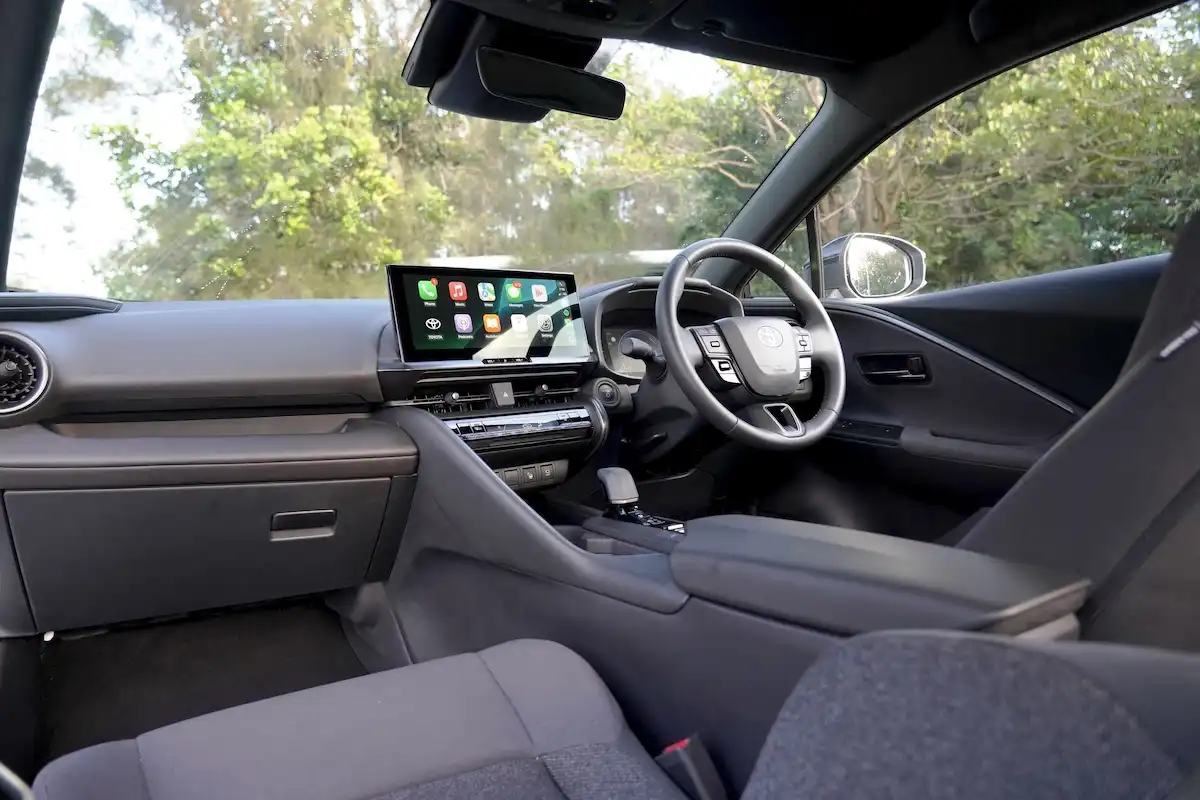
For a vehicle designed to tackle the city run with ease, this neglect of rear visibility erodes confidence behind the wheel.
The C-HR’s surround-view monitor helps with the heavy lifting when it comes to escaping tight car parks, though we were frustrated by this design that exercises style over function.
Back to the front cockpit experience.
Things in the entry-level GXL are fairly unremarkable and a little bland considering the C-HR’s steep pricing for 2025… if you love black and grey, you’ll certainly love the GXL’s cockpit.
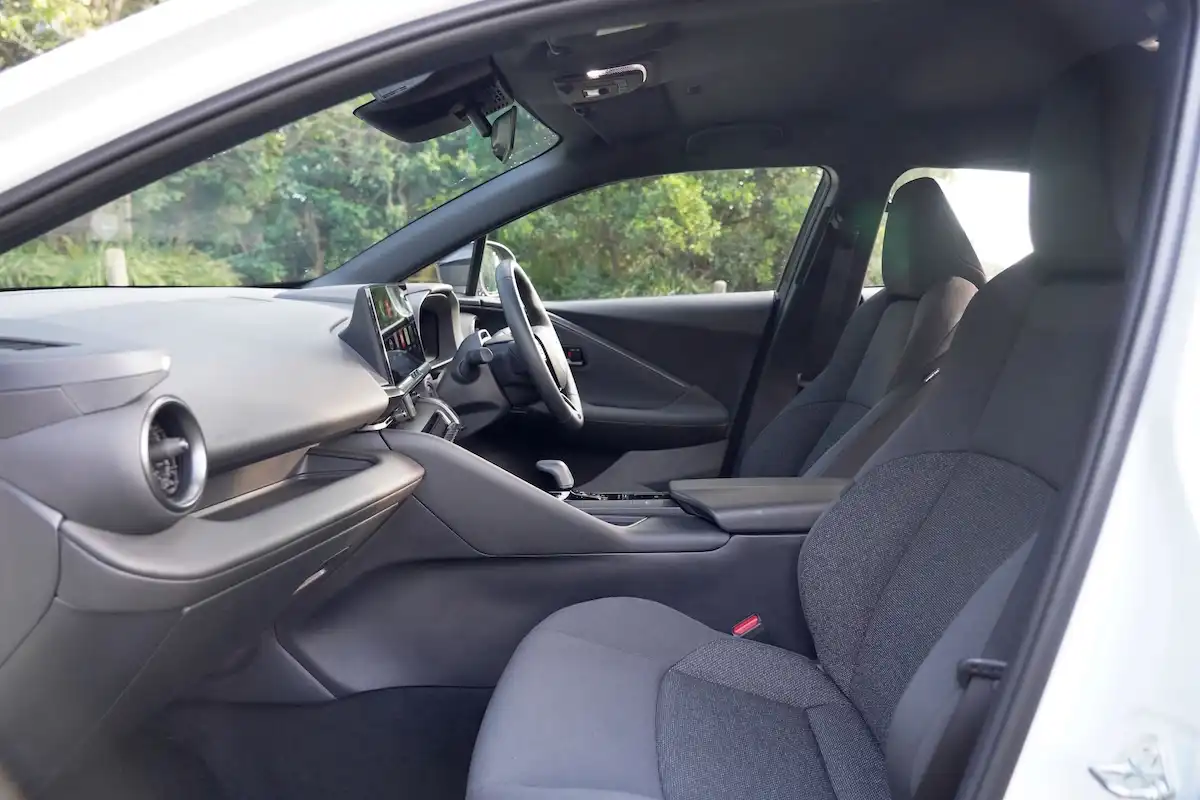
Some interesting design lines weave from the door sills and up to the dashboard that hint to the bold, futuristic styling package outside though, for the most part, things are pretty conventional Toyota inside the cabin.
The chunky little steering wheel feels nice, though, as do all the most frequented touchpoints, which pick up a soft finish.
Storage options are solid, with a large rubber-lined tray hiding behind the gear lever stretching deep underneath the dash joined by a pair of cupholders and a decent amount of storage inside the folding armrest.
There’s also a neat little tray positioned in front of the passenger’s seat, a surprisngly large glovebox and narrow bottle holders hiding inside the door sills.
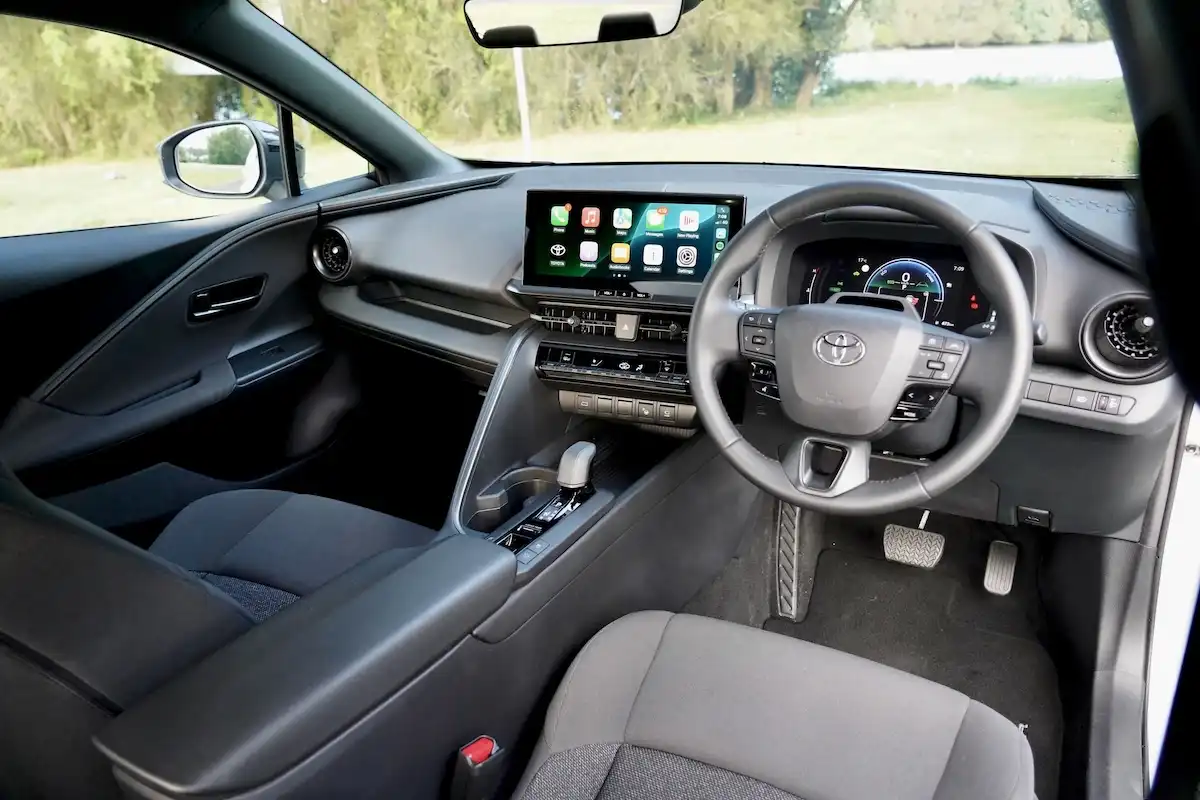
Move to the rear of the cabin and things are challenging if you’re sitting behind a tall adult.
In my regular driving position, there was actually enough legroom for me to sit in the second row with my legs brushing against the seatback and plenty of toe room.
The main problem is the C-HR’s sloped roofline design which doesn’t offer much in the way of hearoom; with proper posture, my head is rubbing against the headliner.
This makes it more suitable for kids, though they’ll struggle to get a view out of the tiny, raised second row windows, which can make things feel pretty dark and cramped back here.
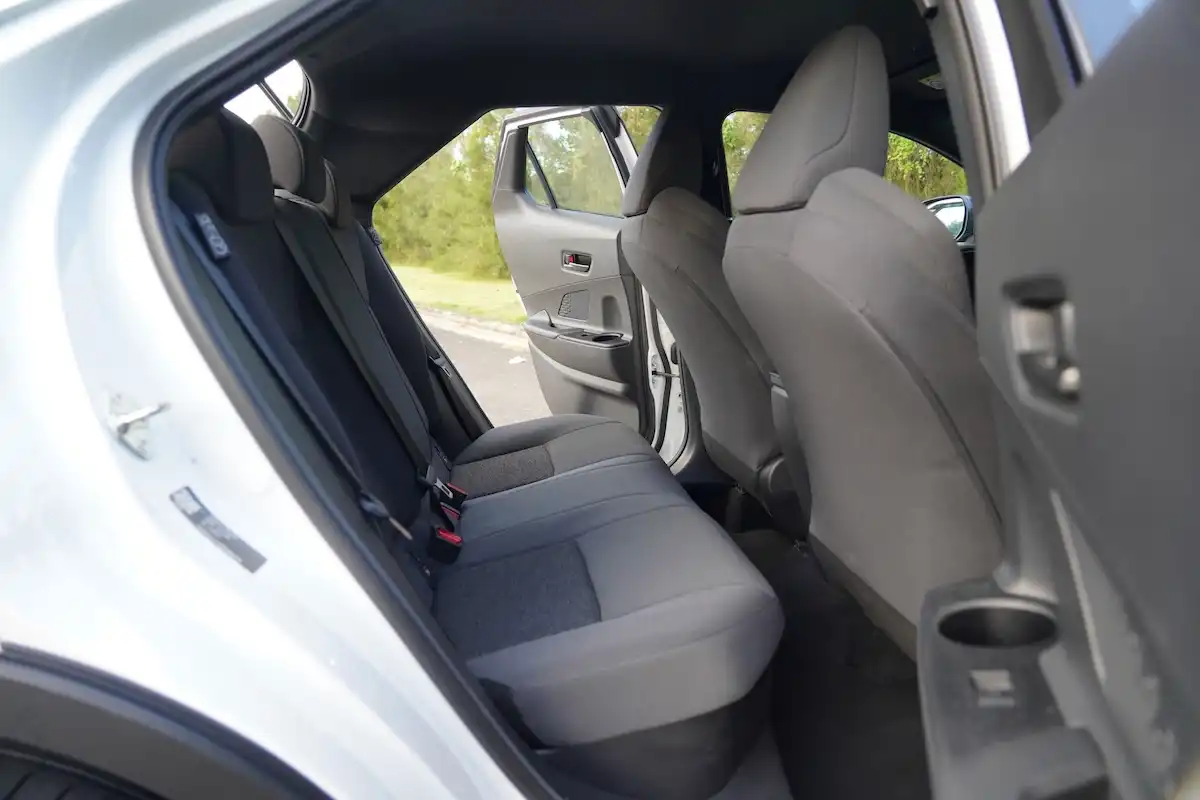
Amenities are also scarce, with no rear air vents or charging ports on offer, just a cupholder built into the side armrest.
For the parents out there, the Toyota C-HR comes packaged with a pair of ISOFIX anchors on each of the outboard seats as well as three top tether mounts on the seatback.
How Big is the Toyota C-HR’s Boot?
The Toyota C-HR receives a hatchback design that has lent itself quite nicely to boot accommodation.
While it doesn’t offer game-changing figures, the C-HR’s boot does pip some a key rival and helps to soften the blow of the somewhat cramped rear seat experience.
Measuring 362L with the rear seats standing, the C-HR has a larger boot than you’ll find in the Honda HR-V, Mazda CX-30 and the Subaru Crosstrek, though it can’t match the likes of the Hyundai Kona, Nissan Juke or the Peugeot 2008.
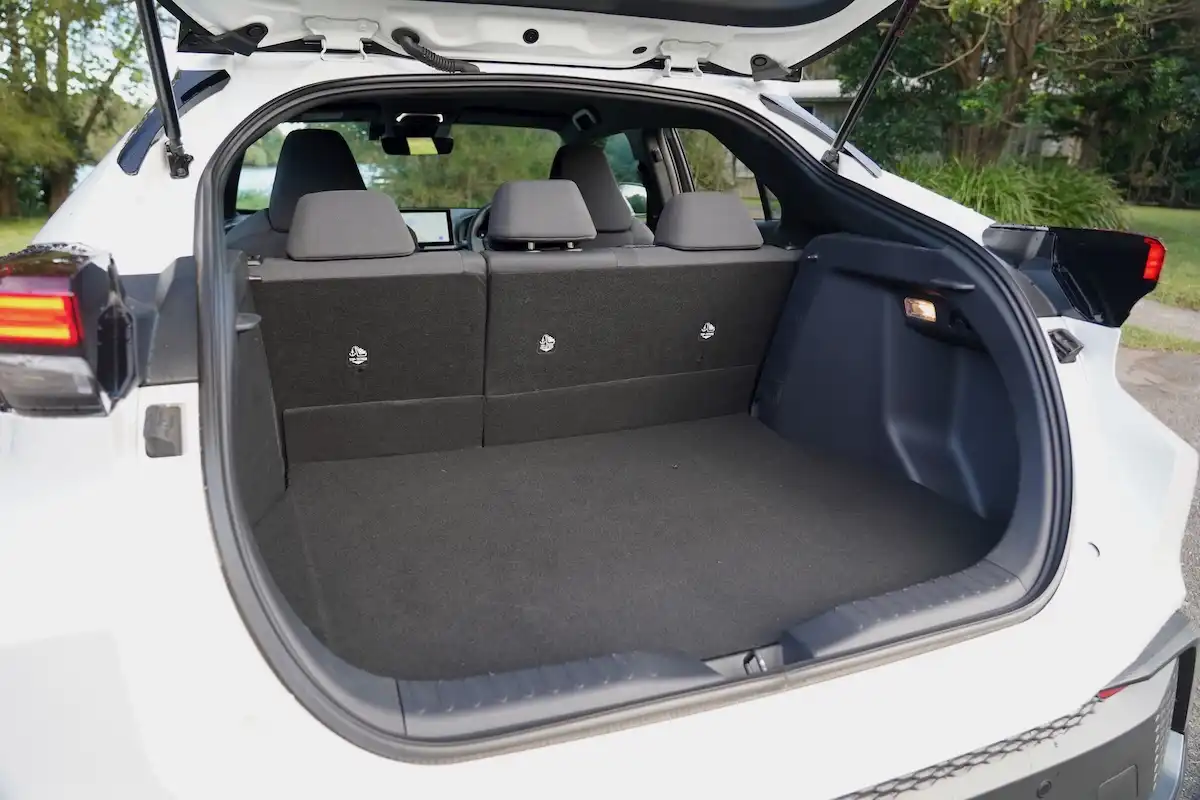
Fold down the 60:40 split rear seats and you’ll unlock a total of 1,134L worth of boot space which makes it a nice little weekend warrior.
The C-HR’s boot receives a couple of bag hooks and cut-outs that sink below the boot floor, with only a slight load lift to navigate when you’re unpacking heavy bags and a space-saver spare tyre hiding beneath the boot floor.
-
Toyota C-HR Boot Space Minimum: 362L
-
Toyota C-HR Boot Space Maximum: 1,134L
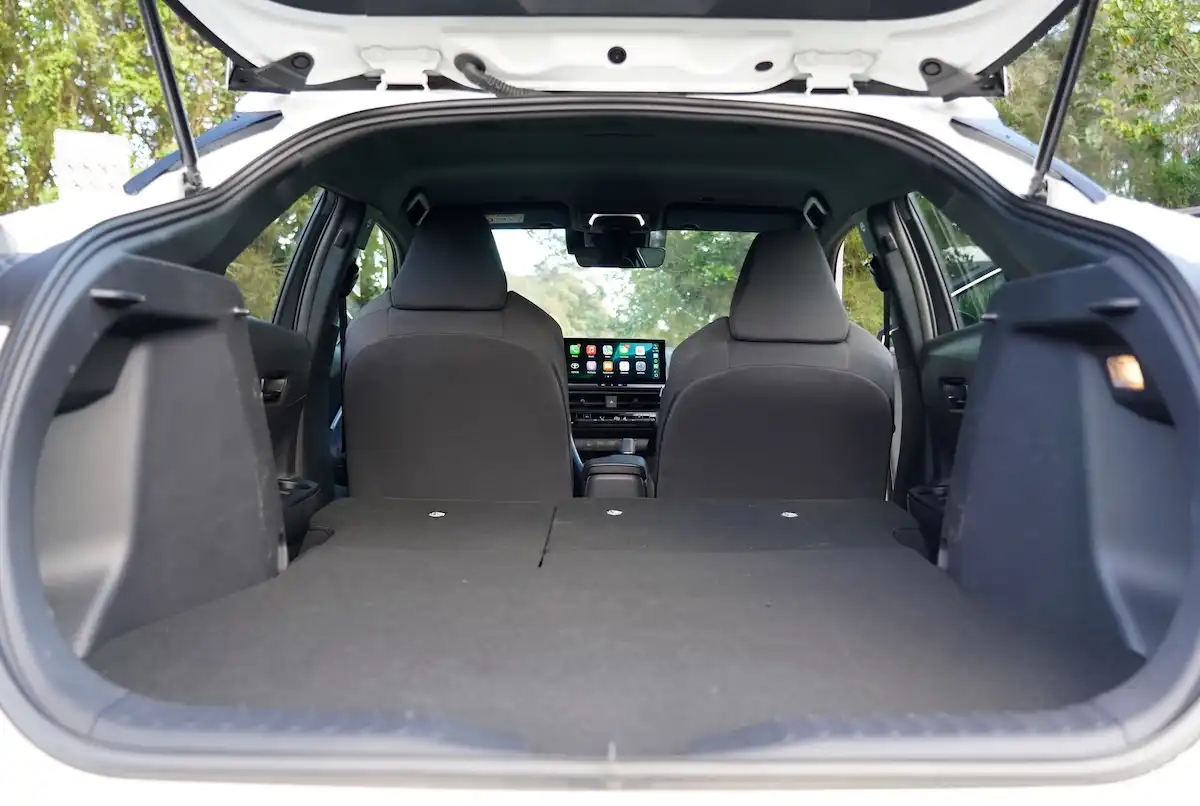
Is the Toyota C-HR Safe?
The C-HR range picks up a lengthy safety equipment list, a feat made even more appealing by the fact that Toyota is happy to bundle it all into entry-level GXL variants.
As standard, buyers pick up autonomous emergency braking with junction assist as well as pedestrian and cyclist detection, adaptive cruise control, blind-spot monitoring and rear cross-traffic alerts.
Buyers also receive lane-keep alerts with lane-centring, emergency steering assist, parking assist, a surround-view monitor with front & rear parking sensors, safe exit alerts, rear seat occupant reminders, speed sign detection and ten airbags inside the cabin.
We found Toyota’s curve speed reduction with the adaptive cruise control system engaged to be overly conservative, slowing us down considerably on even minor bends, though have no complaints with the amount of kit thrown into the base version.
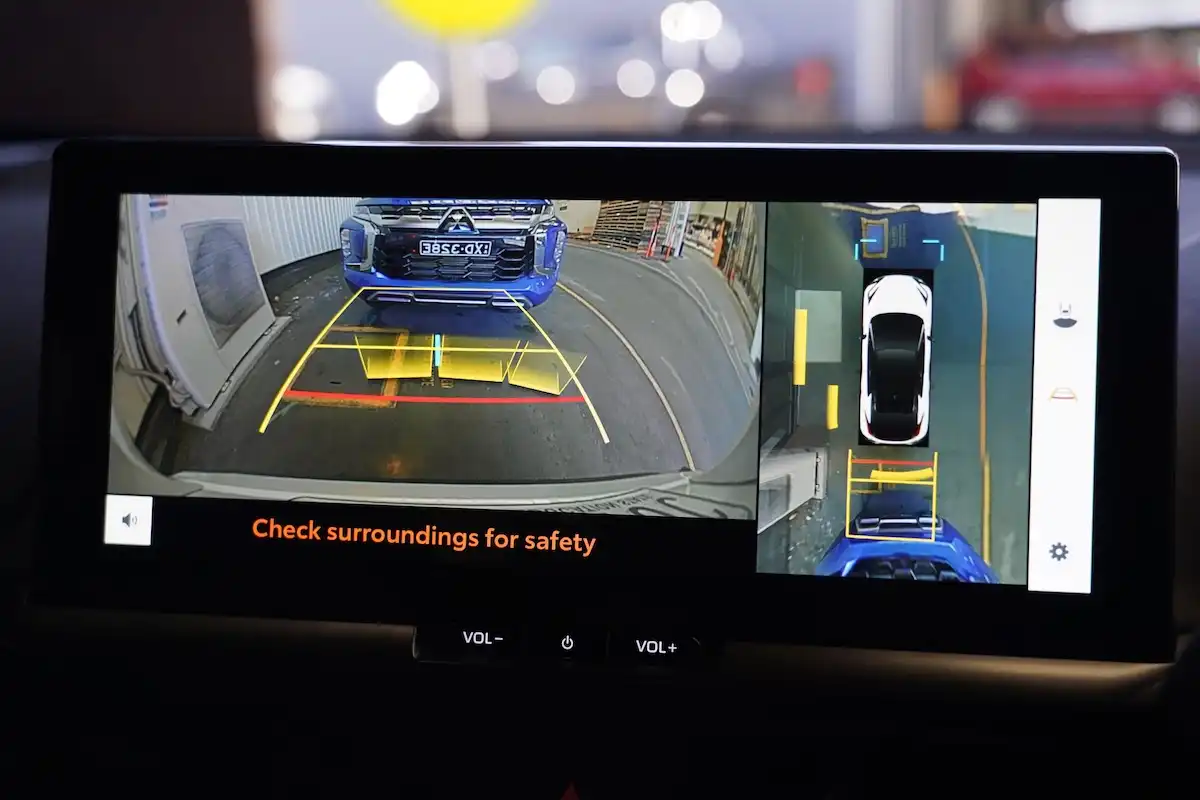
Does the Toyota C-HR Have an ANCAP Safety Rating?
The MY25 C-HR range hits the road with a five-star ANCAP safety rating from testing in 2024.
-
Adult Occupant Protection: 85%
-
Child Occupant Protection: 88%
-
Vulnerable Road User Protection: 86%
-
Safety Assist: 82%
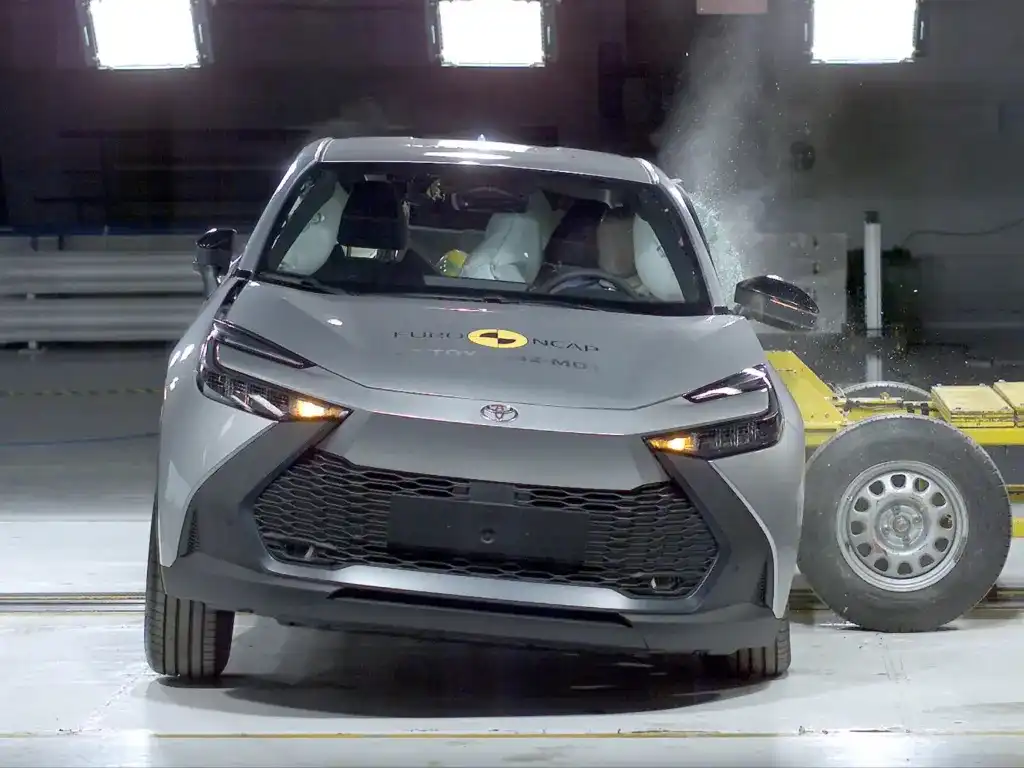
What Warranty Does the Toyota C-HR Come With?
Toyota offers the MY25 C-HR range with a five-year/unlimited-kilometre warranty.
This five year warranty stretches out to seven years for the engine and driveline when you keep the C-HR serviced on-time, within the Toyota dealer network.
The C-HR’s battery and hybrid unit are backed by a warranty that extends out to ten years if you keep it serviced within the network and on time.
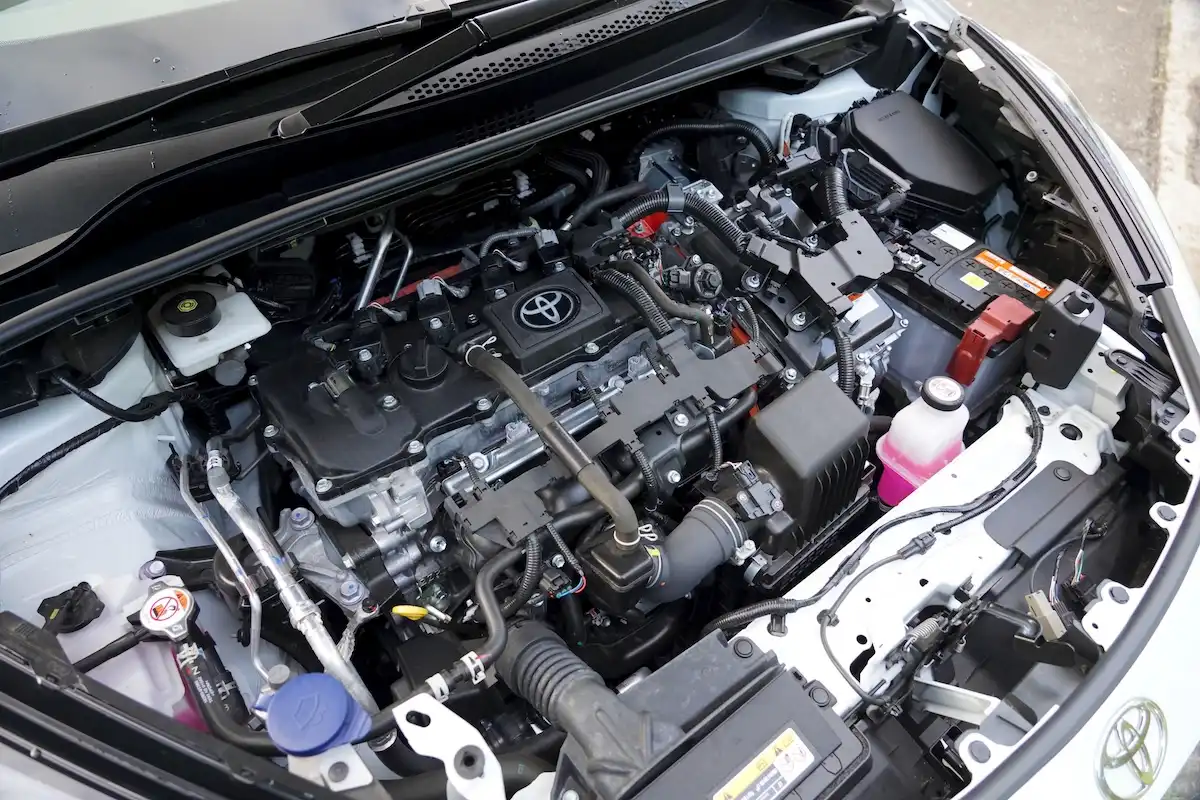
Toyota also offers five years' worth of capped-price servicing, which is priced at $250 per visit, totalling $1,250 over five years.
Service intervals for the C-HR range sit at 12 months or 15,000 kilometres.
Our Verdict: Is the Toyota C-HR Worth it?
The C-HR is a great little package, though its appeal is quite narrow and ultimately kneecapped by aggressive pricing while being completely overshadowed by siblings within the Toyota stables.
It’s also not without a few noticeable quirks that stem from prioritising form over function.
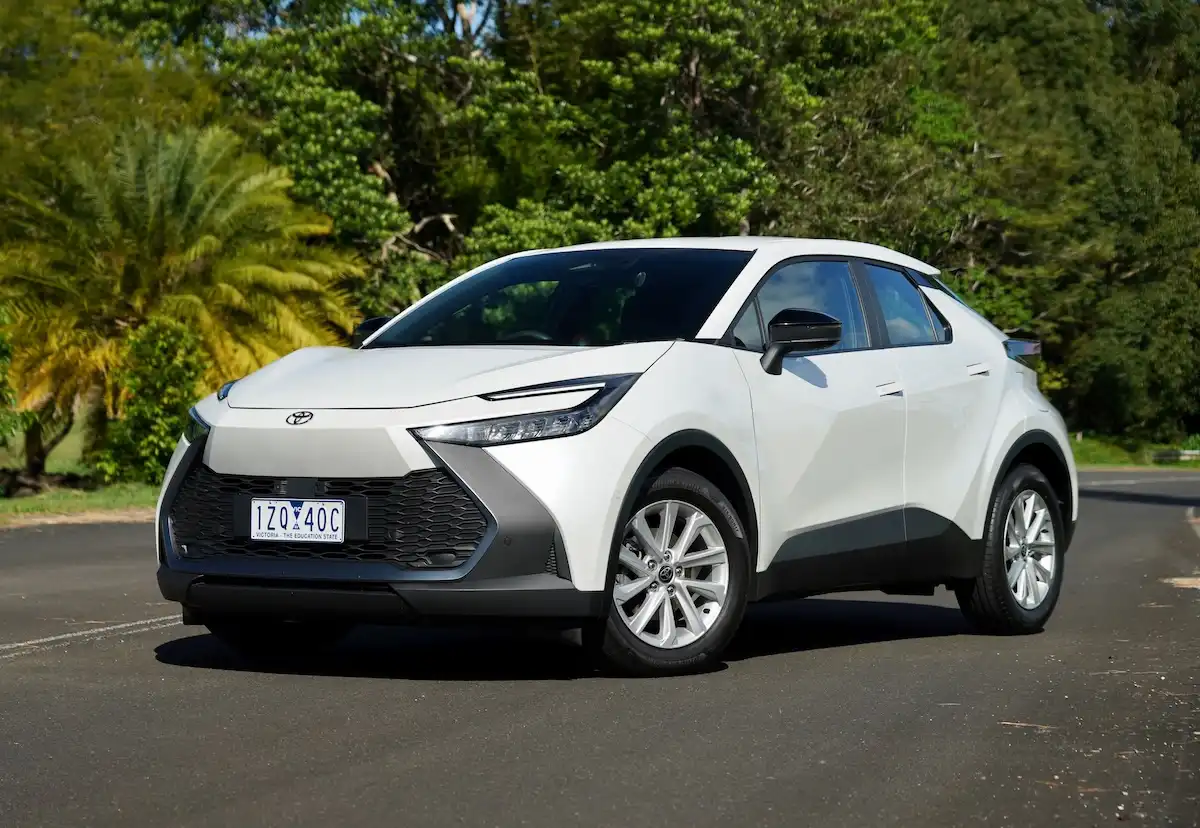
Setting aside its ever-plentiful - and in many cases, more affordable - rivals, a major hurdle for the C-HR comes in the form of internal competition within the Toyota lineup.
It’s far less practical than the Corolla Cross, though it remains priced above both the Corolla Cross GX and GXL. This makes the C-HR more of a stylistic, emotional pitch to buyers than a logical one, especially if you’ve got a growing family.
Of the wider C-HR bunch, the entry-level GLX makes the most sense on the value front, especially when you factor in the affordable capped-price servicing packages and the excellent fuel economy.
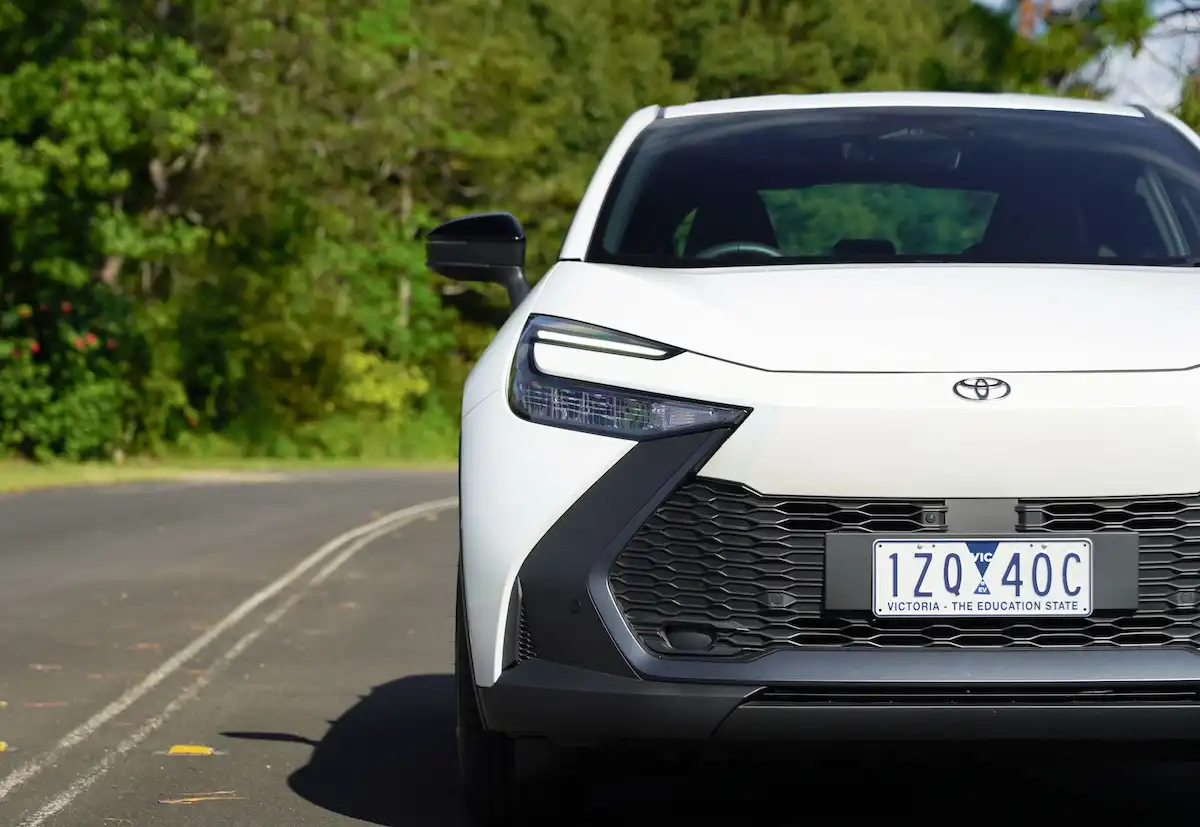
There isn’t much in the way of premium touches on offer in the GXL, though, while the upgrade to the range-topping GR Sport brings the C-HR up against some seriously stiff competition.
That said, we can’t hate on Toyota for bolstering its SUV lineup with a bold and futuristic offering, especially when it doesn’t replace any existing members.
Rather, it appeals to small SUV buyers that prioritise aesthetics and, thankfully, backs this up with great substance on the road and class-leading efficiency that make it well worth a spot on the shortlist if you love the design language.
On that note, our team of car-buying specialists is waiting on hand to help find you the best possible price on your next car.
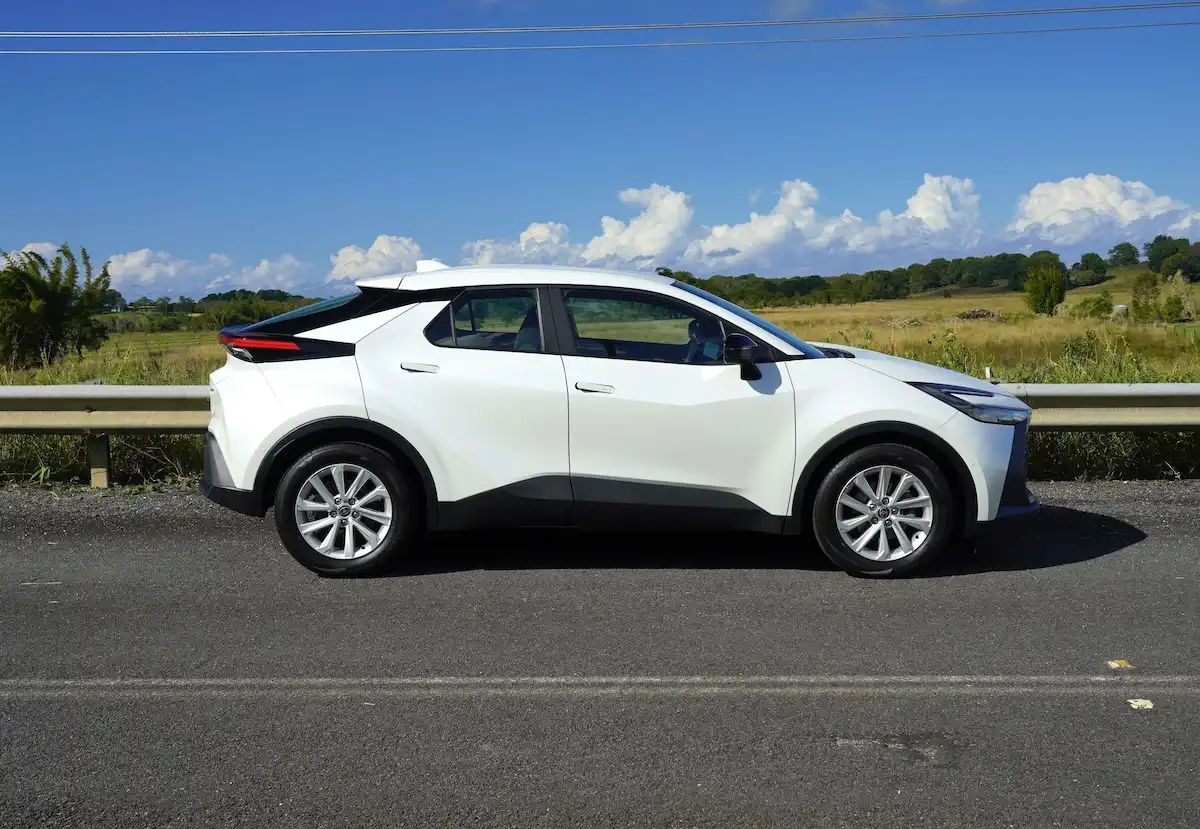
Five Toyota C-HR Specs You Need to Know
-
Five-year/unlimited-km warranty can stretch out to seven years for driveline
-
Servicing costs capped at $250 per visit; $1,250 over five years
-
Ten-year hybrid warranty when serviced within network, on time
-
4.0L per 100km combined cycle fuel economy
-
362 - 1,134L boot space
Get in touch with one of our Car Buying Specialists today.
Request a quote